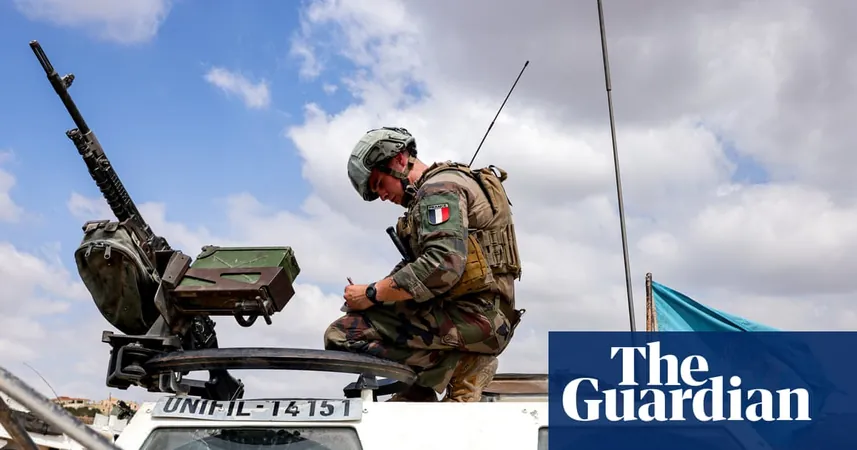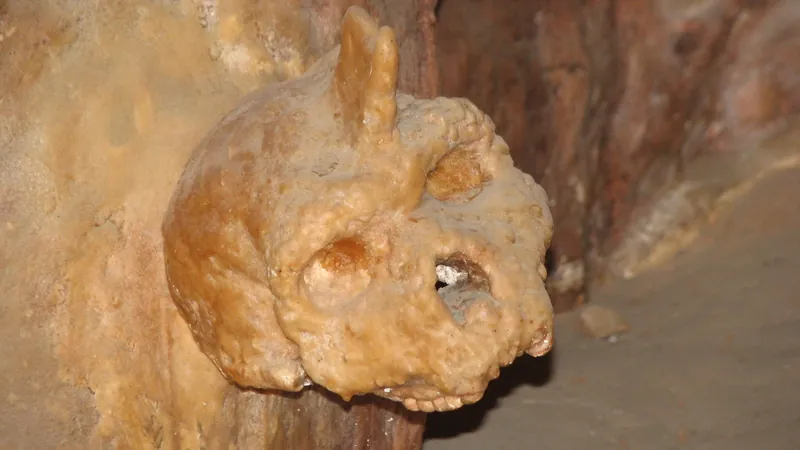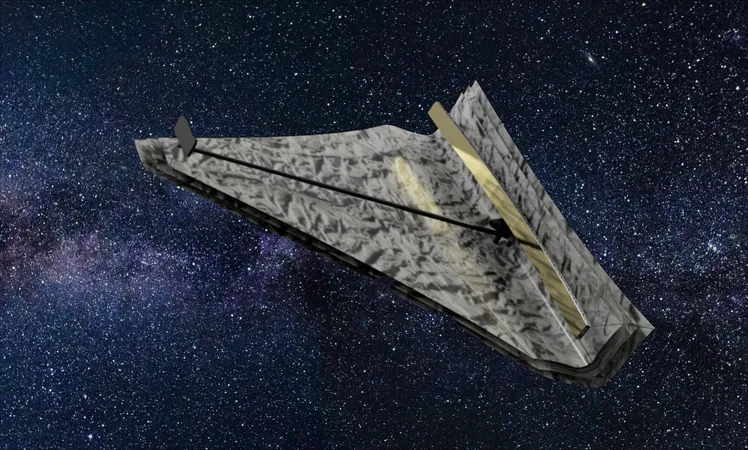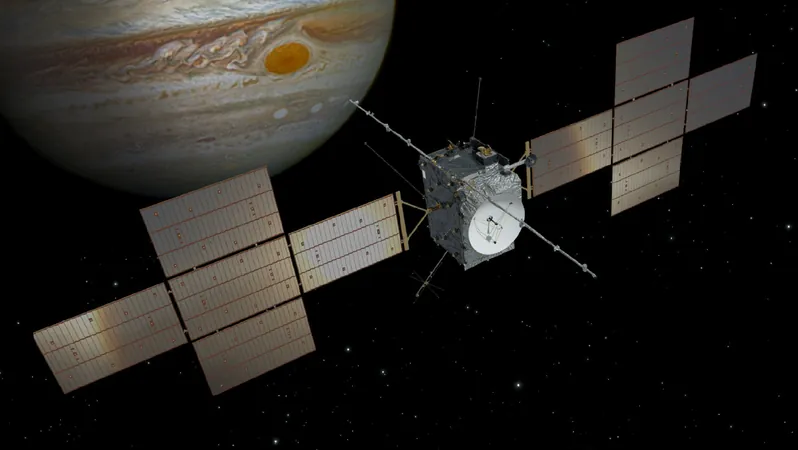
UN Peacekeeping Mission in Lebanon to End by 2026 Amidst Israeli and US Lobbying
2025-08-29
Author: Jacques
UN Security Council Votes for Withdrawal of Peacekeepers
In a recent development that has significant implications for regional stability, the United Nations Security Council has voted to extend its peacekeeping mission in Lebanon for an additional 16 months. However, amidst increasing pressure from Israel and the United States, this extension comes with the announcement that the mission will conclude by the end of 2026.
The unanimous vote on Thursday grants some respite to Lebanese officials, who heavily rely on the UN Interim Force in Lebanon (Unifil), particularly as its mandate approached expiration.
End of an Era: 47 Years of Peacekeeping
Originally established in 1978 to oversee the withdrawal of Israeli troops from southern Lebanon, Unifil has played a critical role in patrolling the region's tense borders. With 10,800 peacekeepers currently stationed in Lebanon, the approved resolution outlines plans for an 'orderly and safe withdrawal' starting in December 2026, marking the end of a 47-year-long mission.
Escalating Tensions and New Mandates
This new resolution emphasizes the goal of making the Lebanese government the sole security force in southern Lebanon, urging Israel to withdraw its military presence. Despite this, Israel has continued to occupy multiple points in the region and has conducted numerous airstrikes, claiming these actions are necessary to curb Hezbollah's military efforts.
The push for this resolution comes as part of a broader effort by Israeli and US officials to reshape the mission. US Ambassador to the UN, Dorothy Shea, stated that this would be the last UN extension of the Unifil mission, signaling a potential pivot in US foreign policy towards Israel.
Reactions from the International Community
The Israeli representative to the UN, Danny Danon, welcomed the vote, expressing optimism about the changing landscape at the UN. Under the previous Trump administration, the US increasingly aligned its stance with Israel regarding Unifil's role, with claims that the peacekeeping force had provided cover for Hezbollah's activities.
Throughout its existence, Unifil has had a contentious relationship with Hezbollah, with peacekeepers often facing hostility, including physical confrontations from locals sympathetic to the militant group.
Lebanese Government's Response and Future Steps
The Lebanese government, which has relied on Unifil to balance power in the region, has expressed concern about the upcoming withdrawal. Prime Minister Nawaf Salam noted the need for Israel to vacate its occupied sites and emphasized the importance of establishing state authority over all Lebanese territory. Meanwhile, the Lebanese army is preparing to present a new plan to disarm Hezbollah, a sensitive task that aims to avoid provoking conflict while maintaining civil peace.
Potential Impacts on Regional Stability
Countries such as France and Italy have raised alarm over the planned withdrawal, arguing it could significantly weaken the Lebanese army's efforts to assert authority in southern Lebanon. As tensions continue to simmer, the international community watches closely, aware that the path ahead could significantly impact broader regional dynamics.









 Brasil (PT)
Brasil (PT)
 Canada (EN)
Canada (EN)
 Chile (ES)
Chile (ES)
 Česko (CS)
Česko (CS)
 대한민국 (KO)
대한민국 (KO)
 España (ES)
España (ES)
 France (FR)
France (FR)
 Hong Kong (EN)
Hong Kong (EN)
 Italia (IT)
Italia (IT)
 日本 (JA)
日本 (JA)
 Magyarország (HU)
Magyarország (HU)
 Norge (NO)
Norge (NO)
 Polska (PL)
Polska (PL)
 Schweiz (DE)
Schweiz (DE)
 Singapore (EN)
Singapore (EN)
 Sverige (SV)
Sverige (SV)
 Suomi (FI)
Suomi (FI)
 Türkiye (TR)
Türkiye (TR)
 الإمارات العربية المتحدة (AR)
الإمارات العربية المتحدة (AR)